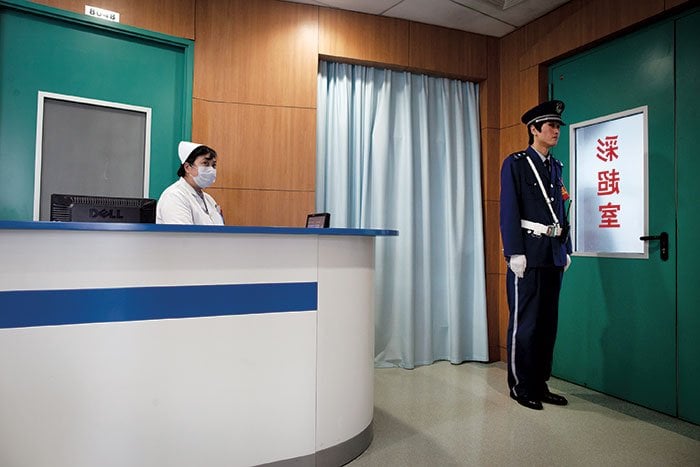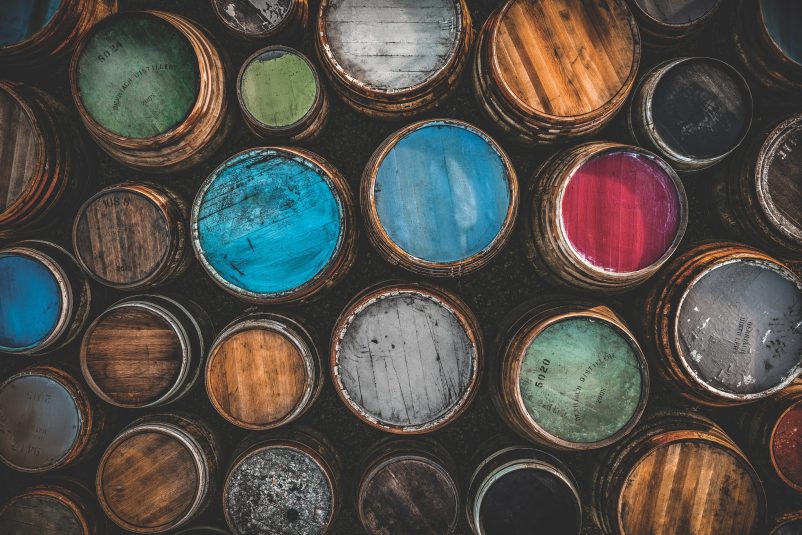China’s booming economy has sparked enormous growth in tourism from abroad, but visitors probably don’t realize that the country hasn’t seen equivalent growth in the caliber of its health care, which generally remains far below the level of Western medicine. Though many foreigners assume that China’s wealth has made modern health care available at least to China’s new rich, that isn’t the case. When wealthy Chinese need access to top-quality medicine, they travel to the big medical centers of Beijing and Shanghai or leave the country.
Why is the situation so dire? Well, estimates I’ve seen suggest that as few as 1 percent of “doctors” in China have an accredited medical degree. The other 99 percent have limited formal training and/or clinical experience. Making things worse, qualified doctors are seriously underpaid, and as a result confine their practices only to the largest hospitals in big cities. Most supplement their income by selling pharmaceuticals to patients, an obvious conflict of interest.

Other than the capital cities, China is still mostly a developing country, with contaminated water, poor sanitation, often unhygienic food preparation and inconsistent drug regulation. The crowded poultry and stockyards of rural China serve as the world’s incubator for novel strains of influenza, some of which become dangerous avian and swine flu epidemics. China’s new high-speed trains mean that contagious diseases can now be distributed nationwide at 220 miles per hour. Combined with the Chinese habit of spitting—perhaps the fastest way of spreading an airborne infection, as micro-particles of bacteria-laden saliva float in the air, waiting to be inhaled by others in proximity—these conditions create the perfect storm for an epidemic.
The risk of flu virus may be the most alarming threat, but it’s not the most common. That would be contracting an illness due to environmental pollution. China’s cities are plagued by poor air quality, and airborne toxins are the top cause of travelers’ complaints, including respiratory infections, persistent asthma, sinus problems and skin rashes. Children are particularly prone to these irritants.
I could go on, but the list of medical concerns for tourists in China is probably longer than this column could contain. So let me just make some recommendations:
- If you are visiting a city with serious air pollution—almost a redundant phrase in China—keep children indoors, with an air-purifier running, most of the time.
- To prevent rabies, which is far more common in China than in the U.S., keep youngsters (and yourself) away from stray animals or unknown pets; even a tiny scratch or lick from an infected puppy could spread the disease.
- If you do need major medical attention and you know the name and address of a credible hospital nearby, don’t wait for an ambulance; typically, it’ll either be dangerously slow or not show up at all. Get a car or taxi to take you there.
- In addition to visiting a certified travel health clinic for vaccinations and health warnings, you should take a medical kit containing medications capable of buying you time in a crisis (e.g., nitroglycerin for chest pain) as well as treating the more common problems of sinus infections, asthma attacks and food poisoning.
- The prescription and over-the-counter medications in your medicine kit should be purchased outside of China, as China’s pharmaceuticals are rife with placebos, tainted medications and fraudulent substitutions. Prescription medications should be clearly prescribed to you by name, and your kit should include a letter from the prescribing doctor detailing the contents. (Chinese authorities are reluctant to allow travelers to bring in large quantities of prescription drugs.)
- Make sure you have a reliable way of contacting your home doctor, especially during off hours.
- Of all the places to eat in China, travelers are least likely to get a stomach sickness from four-and five-star hotels, due to their higher standards of food preparation and hygiene. But you can still get food poisoning, usually from water-rinsed salads, ice cubes and seafood. Travelers on rural tours, where luxury hotels aren’t available, should make sure that the food they eat is fully cooked and the water they drink or brush their teeth with comes from a sealed bottle.
China is an incredible place to visit. With just a few precautions, you can ensure that you and your family come home with nothing more than souvenirs and memories.








